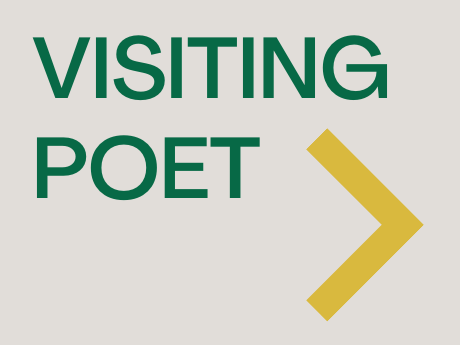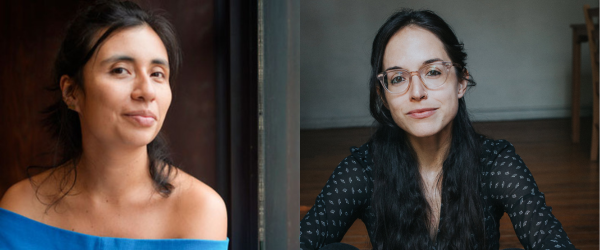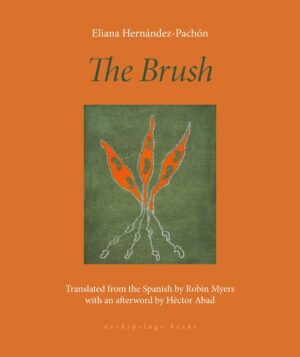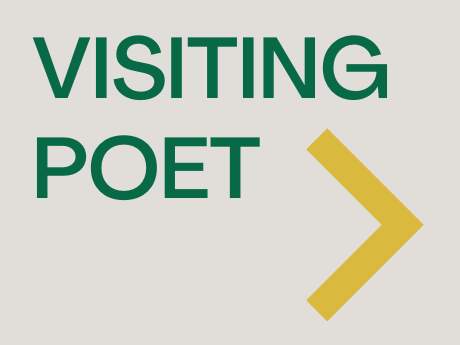Visiting Poet
Visiting Poet: Robin Myers on Eliana Hernández-Pachón

The Brush (an excerpt)
The Witnesses say:
Yes, we heard something, but we said nothing, we couldn’t say anything, the rainwater swarmed on the windowsills. We heard something, but it was a snail-trail slicking along, the summer heat, irritation licking our faces: we thought it was the click-clack of the train. We said nothing, and anyway, what could we have said that they would’ve heard, didn’t everyone know by then? We’re real men. If we open our mouths, will we be able to forget?
We left.
Northward from the forest, as we know, blows the wind, generous.
**
The Investigators continue:
They reach the town like a triumphal march, an astonishing entrance: the exhibition of an omnipotence that could be called defiant at the very least. Even so, we were unable to determine the number of women who were forced to cook, of men and women who were forced to watch, of women and children who were locked up. It is necessary to establish the number of people whose property was damaged, whether fire was used to destroy said property. It is imperative to elucidate the circumstances of the means, time, and place. Still others cannot be understood: why a ghost plane flew overhead in the dead of night, how was it that the authorities heard, and why, when they heard, they failed to lend their ears for a moment, what they were doing, we don’t know, and why they arrived when there was no longer anything to be done.
**
The Brush clarifies:
If matter is human,
this brush, which breathes,
follows the current of itself,
and is a substance that decays
and eats itself
and comes back into being:
breathing, furious.
Everything envelops it:
larvae, their patience,
naked mushrooms, the hypnotic
scent of flowers.
During the concert,
rain is generality.
Every I and every mine
is open sky or moss.
It loses its possessive, but
it’s water pooling densely,
breeding tadpoles.
Translated from the Spanish by Robin Myers
Reprinted from The Brush (Archipelago Books, 2024) by Eliana Hernández-Pachón, translated from the Spanish by Robin Myers. Reprinted with permission. All rights reserved.
On The Brush
The Brush tells the story of a massacre, though it neither begins nor ends there.
In February 2000, paramilitary forces in the village of El Salado, Colombia, tortured and killed sixty people over the course of several days. Not only that: they forced the victims’ families and neighbors to watch the executions in the town square. Not only that: the militiamen played music as they slaughtered, banging on drums and cranking up speakers they’d stolen from the village cultural center and private homes. Not only that: the national marine corps battalion entrusted with monitoring the area had withdrawn just the day before, leaving the residents of El Salado abruptly and utterly unprotected. Many fled, or were killed as they tried to flee. Two years later, many returned to the land from which they’d been so brutally expelled.
Poet and educator Eliana Hernández-Pachón, born in Bogotá, was eleven years old when the El Salado massacre took place. Now in her thirties, writing The Brush became a way for her to retell a story that everyone in Colombia has heard – but to tell it in a new way, searching for a new form.
What she found was polyphony. The first two of the three-part book focus on Pablo and Ester, a middle-aged couple going about their days before the massacre. When it comes, Pablo vanishes. Ester escapes into the woods, where she finds herself hiding with another woman and a small child. The final section moves away from the pair and expands into three collective presences: the Witnesses to the slaughter; the Investigators, appearing later on the scene; and the Brush, the land itself. At no point does Hernández-Pachón explicitly recount the massacre as such. She wanted to hew close to the story as it happened, “which is why the book follows a three-part narrative form,” she said in a recent interview. “But there are things that poetry can do better: working with ellipses, for instance, and evoking what can’t be named” – in a way that honors rather than revictimizes those whose lives were shattered and transformed by unspeakable violence.
When I first read La mata, as the book is titled in Spanish, I was especially fascinated by the final section and its three distinct textures. The Witnesses and the Investigators speak in prose as an undifferentiated “we”; the Witnesses, in long, looping sentences, both urgent and oblique, stitched together with commas and anaphora; the Investigators, in the cool language of measurements and maps, sprinkled with the starch of bureaucracy. The Brush describes itself in lush, sonorous, third-person verse. What becomes clear is that the land – the trees, the undergrowth, the forest’s teeming multiplicity – is also a witness and an investigator in its way. It registers the footsteps of the killers, the flight of survivors, the decomposition of the dead. At the same time, it observes insects, blossoms, rainfall, and fungi, the thronging activity of the natural world that goes about its infinite – and often infinitesimal – business alongside, beneath, and beyond the spasmodic lurches of human suffering and survival. I loved the Brush’s prosody and how richly it contrasted with the other voices in Hernández-Pachón’s chorus; I loved its complex beauty, its baroque, almost oracular invocations. This, viscerally, was what first made me want to translate the book.
Over time, my admiration for Hernández-Pachón’s work has only deepened. And in the process, it has only grown more mysterious to me. I treasure this feeling. I shiver with it. Returning today to the passages in the Brush’s perspective that captivated me first, I find myself in the presence of contradictions, or maybe just simultaneities, that both comfort and unnerve me. The Brush is tender and aloof. It speaks as if from a great distance, yet also with a sense of omnipotent intimacy: “After the night / day breaks again like a correction / or a punishment: / the leaves wake warm out of the dark / and liven with the dew / and the voice of the brush, its creatures’ din, is still a concert, / merciless and shrill, / and yet a concert all the same.” The Brush registers human anguish while continuing to name itself, to recite what’s alive, what can’t help but keep living (“These fleshy-petaled flowers, / vanilla-fragrant in the night, / and other flowers, furious, / experts in disobedience”) – the life that will be there to receive the survivors of El Salado when they return, as many do.
“Human temporalities aren’t the same as nature’s,” Hernández-Pachón has said. In this sense, there’s something almost divine about the voice of the Brush, which speaks its piece from underground, and from the trees, and beyond them. And there’s something deeper, more primordial than hope about the continuity it seems to promise. It’s not a human promise, governed by moral codes and mortal conduct. I find it awe-inspiring: the awe of fear, the awe of humility and wonder.
I write these words in the eighth month of the ongoing genocide in Gaza, during which the state of Israel, endorsed and funded by the United States, has killed at least 35,000 Palestinians, including more than 14,500 children, with (many) more than 10,000 still missing. Today, I can’t read The Brush without thinking of them and the people they loved, of the 1.9 million Gazans displaced from their homes, of their homes reduced to rubble; of the staggering percentage of Gaza’s population who were already refugees or the descendents of refugees from the Nakba; of the Palestinian orchards uprooted, crops bulldozed, cemeteries desecrated, water supplies choked off, contaminated with seawater. Of what this land has witnessed, weathered, and scarred over; of what it has grown and sustained.
I can’t read The Brush, either, without thinking of a Palestinian coworker, born and raised in Ramallah, who named her daughter Yafa, after the city from which her family was expelled in 1948.
The Brush tells the story of a massacre, although it neither begins nor ends there. It begins, and doesn’t end, with the land, which doesn’t end, and which inhabits a time that underpins, withstands, embraces, and thankfully exceeds our own. It invokes, and honors, the people who experienced the worst thing in the world, the end of their world, and those who returned to it. Hope beyond hope. How to witness such a thing? And “how could you not be proud,” says the Brush; “not join that inflorescence, indestructible and ravishing?”

ELIANA HERNÁNDEZ-PACHÓN is a writer and educator born in Bogotá, Colombia. The Brush received the Colombia National Poetry Prize in 2020, making Hernández-Pachón the youngest poet to ever receive this honor. She is part of Como un lugar, a poetry collective that runs an independent press in Buenos Aires and organizes a literary festival in NYC. She lives in Brooklyn.
ROBIN MYERS is a poet and translator. Her latest translations include A Whale Is a Country by Isabel Zapata (Fonograf Editions, 2024), What Comes Back by Javier Peñalosa M. (Copper Canyon Press, 2024), The Law of Conservation by Mariana Spada (Deep Vellum, 2023), Bariloche by Andrés Neuman (Open Letter, 2023), and Copy by Dolores Dorantes (Wave Books, 2022).


